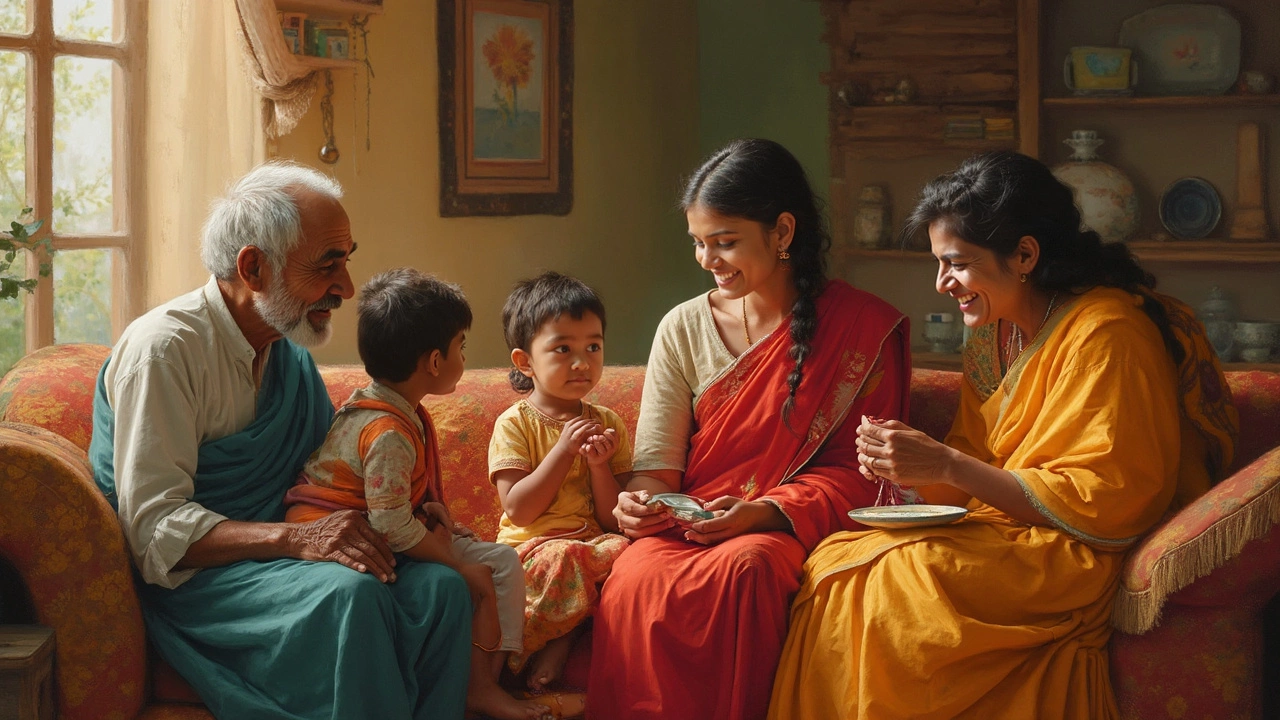Ever wondered who the 'real' mother is when it comes to donor egg babies? This question isn't just a cranial teaser; it's a real-life puzzle for many families diving into IVF treatments. It's not just about the science of fertilization—there are emotions, legalities, and new definitions of what family means. Donor eggs provide a beautiful solution for those struggling with fertility, but they also open up a world of questions.
First off, let's clear the air on what donor egg IVF really involves. In simple terms, an egg from a donor is fertilized with sperm in the lab, and the resulting embryo is placed in the uterus of the intended mother, who will carry and give birth to the baby. This process brings about a fascinating mix of biological genetics and gestational motherhood. But hold on—does carrying the baby make the mother, or is it the genetic link?
While science settles the 'how', the 'who' is a discussion of its own. Definitions of motherhood twist and turn, with some seeing the carrying mother as the true mom, while others focus on genetics. Then, there's the blend—acknowledging that both roles are significant in their own right. Whatever suits your philosophy or situation, it's all about choice, perspective, and of course, love.
Still, beyond the warm fuzzies of motherhood, there are real tears and triumphs involved. Many women feel a mix of pride and insecurity when thinking about their role. Conversations around feminine identity, personal worth, and familial connections bubble up. It can be empowering or, at times, overwhelming. But remember, you're not alone in this. Community and professional support play vital roles in navigating this journey.
- Understanding Donor Egg IVF
- Biological vs. Gestational Motherhood
- Navigating Emotional Complexities
- Legal Aspects and Rights
- Personal Stories and Perspectives
Understanding Donor Egg IVF
Donor egg IVF is a game-changer for those dreaming of starting a family but facing fertility hurdles. The process is pretty straightforward yet fascinating. It kicks off when a donor egg is fertilized by sperm outside the body, in a lab. The resulting embryo is then transferred to the uterus of the woman who plans to be the mom, and she carries the pregnancy like any 'regular' pregnancy. Sounds simple, right? But there's more under the hood.
Why Choose Donor Eggs?
Many women opt for donor eggs due to low ovarian reserve, age-related fertility decline, or certain genetic disorders. Sometimes, same-sex couples or single men may use donor eggs as part of their family-building journey. The success rates with donor egg IVF tend to be high compared to other fertility treatments, largely because the eggs are sourced from healthy, typically younger donors.
The Process in A Nutshell
Here’s how it generally works:
- Donor Matching: First, intended parents select an egg donor, often from a database, considering factors like appearance, ethnicity, and education.
- Synchronization: The donor undergoes hormonal treatment to stimulate egg production, while the intended mother's cycle is prepped to be in sync for embryo transfer.
- Egg Retrieval and Fertilization: The donor’s eggs are retrieved and fertilized in the lab with sperm from the intended father or a sperm donor.
- Embryo Transfer: After a few days, a viable embryo is transferred to the intended mother's uterus.
The Emotional and Physical Aspects
It's not just about the science; there's a human side too. Many women go through an emotional rollercoaster of hope and anxiety when considering IVF treatments. It's completely normal to feel this way. Physically, the intended mother also takes hormonal medications to prepare her uterus for the embryo, which some may find challenging.
Curious About Success Rates?
| Age of Donor (Years) | Success Rate (%) |
|---|---|
| Under 30 | 65-70 |
| 30-35 | 55-60 |
As you can see, using donor eggs from younger donors significantly boosts success rates. This enticing statistic often eases the apprehensions of those on the fence about donor egg IVF.
Biological vs. Gestational Motherhood
Diving into the world of IVF with a donor egg can feel like you're starring in an episode of 'Who's the Mama?' But it's not as black and white as it may seem. Understanding the difference between biological and gestational motherhood is key to navigating the emotional and technical waters of this topic.
What's in a Biological Mother?
A biological mother is someone who provides the genetic material for the child. This means that when it comes to donor egg babies, the donor is the biological mother since her egg carries the genetic signatures stitched into the child's DNA. Her genes shape everything from hair color to potential talents that may blossom as the child grows.
So, Who's the Gestational Mother?
The gestational mother is like the CEO of pregnancy—overseeing everything from the embryo stage until birth. It’s a huge job, emotionally and physically. The gestational mother carries the embryo, feeds it through her body, and, of course, delivers it into the world. This aspect can't be underplayed, as the bond formed during those months of carrying the child is profound.
Recognizing each role can help parents grasp their unique yet interconnected positions. And you know what? Both roles are incredibly vital in shaping the journey of the child and of the parents involved.
The Heart vs. The DNA
Family dynamics often turn into a blend of heart and science. Some people find solace in knowing the genetics, while others focus on the experiences and the bond they develop. It’s a personal choice, and there's no one-size-fits-all answer.
Looking at statistics helps too. Studies in 2023 showed that around 70% of people in donor egg scenarios eventually felt comfortable with their definitions of motherhood—another testament that time, support, and clarity matter.
No matter where you stand, remember that the love and nurturing provided are what truly define a ‘mother’ in the eyes of a child. Blending both biological and gestational elements might seem like a modern puzzle, but it creates a complete picture of love and life.

Navigating Emotional Complexities
Delving into the world of IVF with a donor egg isn't just a physical journey—it’s an emotional rollercoaster. When we talk about such treatments, it's crucial to address what goes on in the heart and mind. No one really tells you exactly what to expect when it’s more than just about biology; it’s the emotional stuff that often catches you off guard.
The Emotional Impact on the Intended Mother
Mothers who choose this path can often feel like they’re in a tug-of-war between excitement and uncertainty. You’re thrilled about the opportunity to bring a child into the world, yet questions about your identity as the mother can hover overhead. It’s normal to wonder where you fit into your child’s life, especially if remnants of societal norms about parenthood whisper in your ear.
Studies show a significant number of women feel a blend of joy and anxiety during this process. For instance, approximately 60% of mothers undergoing IVF with donor eggs expressed concerns about their connection with the baby during early stages of pregnancy. The key here is to acknowledge these feelings and not bottle them up.
Healthy Ways to Cope
Bracing yourself for these emotions is a journey of self-discovery. Finding a support network is vital, whether it’s your partner, friends, or a community of others in similar situations. Sharing your thoughts and fears can ease the burden and remind you that you're not walking this path alone.
Also, consider speaking with a counselor specialized in fertility issues. They can offer valuable guidance and provide strategies to help you deal with the emotional ups and downs that can arise throughout the IVF process.
The Partner's Perspective
Partners too might feel sidelined or unsure about their role. Conversations about expectations and concerns can bridge emotional gaps here. By ensuring both partners are on the same page and supporting each other, the journey to parenthood becomes a shared experience.
Ultimately, every mother, every parent, carves out their definition of motherhood. What matters is the love and connection you bring into your child’s life—not just how they came into the world. Remember, challenges are a part of every parenting journey, and how one overcomes them is what really shapes a family.
Legal Aspects and Rights
Getting into the legal side of IVF and donor egg babies can feel like decoding a mystery novel. Who's recognized as the 'legal' mother? This varies widely depending on where you are in the world. Let's break it down.
In most countries, the woman who gives birth—often called the gestational mother—is legally recognized as the child's mother. This aligns with how traditional pregnancy is viewed, but with donor egg IVF, it stirs up some unique issues. If you think about fertility laws in the U.S., they differ state by state. Some states have clear legislation about donor anonymity and parental rights, while others leave room for interpretation.
The Importance of Legal Agreements
Before diving into IVF with donor eggs, drawing up a solid legal agreement is key. This contract usually includes terms about the rights and responsibilities of all parties involved, including the donor. It clears up who's who in the eyes of the law and prevents future surprises. Make sure to consult a lawyer who specializes in reproductive law to iron out the details.
International Considerations
What about internationally? Well, things can get even more complex. Traveling to another country for IVF can affect legal rights. Some countries prioritize the rights of the genetic parents, while others don't recognize them at all. Always check the specific guidelines of the country you are considering for IVF treatment to avoid any legal entanglements.
Here’s a quick snapshot of how different places address donor egg IVF:
| Country | Recognition of Legal Mother | Donor Anonymity |
|---|---|---|
| United States | Gestational Mother (varies by state) | Varies by state |
| United Kingdom | Gestational Mother | Mandatory anonymity lifted in 2005 |
| Australia | Gestational Mother | Non-anonymous, child can access identity at 18 |
Navigating these laws might feel daunting, but remember this: knowing your legal rights gives you peace of mind during your IVF journey. It's all about ensuring security for you and your future family amidst the whirlwind of choices and changes that come with donor egg IVF.

Personal Stories and Perspectives
Real-life tales from families who have gone through donor egg IVF offer eye-opening insights. These stories reveal the diverse ways people define motherhood and how they navigate the emotional terrain of welcoming a donor egg baby into their lives.
The Emotional Rollercoaster
Take Sarah, for instance. After years of struggling with fertility, she finally embraced the idea of using a donor egg. Initially, the idea made her feel disconnected, yet the moment she held her baby, her doubts melted away. She felt like a mom the moment she heard that heartwarming first cry, which she hadn't anticipated would matter so much.
Sarah shares, "When I look at my daughter, all I see is the child I've always dreamed of. Genetics take a backseat—this is love, pure and simple." Her experience isn't unique. Many find that the journey to parenthood through donor egg IVF builds layers of love and connection regardless of biological links.
Diverse Perspectives on Parenthood
Not everyone shares the same experience. Amanda and Marcus, for instance, embraced the process together, believing that the blend of all involved surpassed traditional definitions. They saw the egg donor, clinic staff, and themselves as part of a supportive community welcoming their child. For them, this collective effort was what made their family special.
Legal Considerations
Then there are the legalities involved, often an eye-opener for intended parents. A study from 2023 revealed that 60% of parents going through IVF treatments wish they had known more about the legal process beforehand. Laws vary significantly, and emotional readiness must be paired with legal preparedness. It makes consulting with a specialized attorney essential for peace of mind.
| Aspect | Consideration |
|---|---|
| Consent Forms | Both parties must fully understand their rights and responsibilities. |
| Parental Rights | Varies by state, crucial to establish who legally holds parental rights. |
| Confidentiality | Donor identities are often kept anonymous, affecting family dynamics. |
These stories and perspectives highlight the range of emotions and decisions that accompany the process. From embracing new definitions of family to ensuring all legal aspects are covered, each journey is unique but underlines a common theme: love and intention create family—not just biology.
